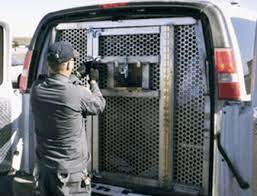
Meghan Quinn
Meghan Quinn is from Lewiston, Maine. Currently, she’s incarcerated in the Androscoggin County Jail, in Auburn, Maine. Like Nancy Carroll, Lauren Sierra, Roberta Blake, Theresa Wigley, Tyisha Anthony and so many other women and men who have struggled to endure the atrocities of prisoner transport, Meghan Quinn is traumatized by her experience in the van, but at least she’s alive. Last November, Meghan Quinn suffered a five-day journey, in a cage, from Florida to Maine. The Androscoggin County Jail paid Prisoner Transport Services a little less than $1500 for five days of torture. As the Lewiston Sun Journal noted, “Quinn’s extradition is not unusual. It’s a routine process across this country to locate, collect and return defendants to answer charges.” Torture of prisoners during transport is a routine process across this country.
Meghan Quinn’s five days of hell began in Florida. She was the first in a van that would wander from prison to jail up the entire East Coast. Because the other prisoners were all men, Meghan Quinn was `separated’ from the others … for her protection. For five days, hands cuffed to belly and ankles shackled together, Meghan Quinn was locked in a cage the size of a dog crate. She was fed through the bars. She was forced to go to the bathroom, in the cage, in plain view of the other prisoners. On the third day, her period began, and she was forced to sit, without sanitary pads, for hours on end. She vomited, and was forced to sit in that as well. Another prisoner in the van with her has independently corroborated her story.
When Meghan Quinn arrived at the Androscoggin County Jail, she wrote a six-page letter describing her ordeal. She sent one copy to the judge, who appears not to have received it, and another to the Sun Journal, who followed up, which is how we know about this case, unlike so many others. In her letter, Meghan Quinn wrote, “Never, no matter how bad things have ever got in my life, have I considered suicide or wished death upon myself. But many times throughout this ride I prayed to God to take my life and put me out of the misery. I felt sexually, physically and mentally violated and humiliated.” In an interview, she added, “I don’t know, but it was just something I couldn’t deal with. And most of the reason I wanted to sue them is all I could think is how many other people they do this to.”
Since the Sun Journal published its expose, District Attorneys for five Maine counties have stopped their contracts with Prisoner Transport Services. While that’s a start, Prisoner Transport Services is typical, not exceptional, in the industry. Since 2000, close to 30 people have been killed or seriously injured in more than 50 crashes on private prisoner transport vehicles, and that’s the tip of the iceberg. Since 2000, at least 14 women have alleged that they were sexually assaulted by guards while being transported. Throughout, Prisoner Transport Services has stonewalled everyone who tries to investigate, from the federal government to news agencies to lawyers’ representing prisoners. The Marshall Project and The New York Times wrote a scathing report last July. The Marshall Project and The New York Times wrote another scathing report last month. Last June, Women In and Beyond published Nancy Carroll’s personal account of her traumatic journey. Lawsuit after lawsuit is filed. Many are won. In 2000, a law, Jeanna’s Act, was passed which was meant to regulate and set standards for prisoner transport. In seventeen years, was enforced once.
Why do these rolling caravans of violence and torture keep crisscrossing the country? Because no one, other than the usual suspects, cares. As Judith Meyer, Executive Editor of the Lewiston Sun-Journal said, “In the case of Meghan Quinn, I would say the cost was much too high to her, and to the men who were on the transport van, at least one of whom we’ve heard from, who said it was just awful to watch what she was going through.” What happened to Meghan Quinn? The absolutely routine torture of women and men across the United States.
(Photo Credit: Sun-Journal) (Video Credit: Sun-Journal / YouTube)
